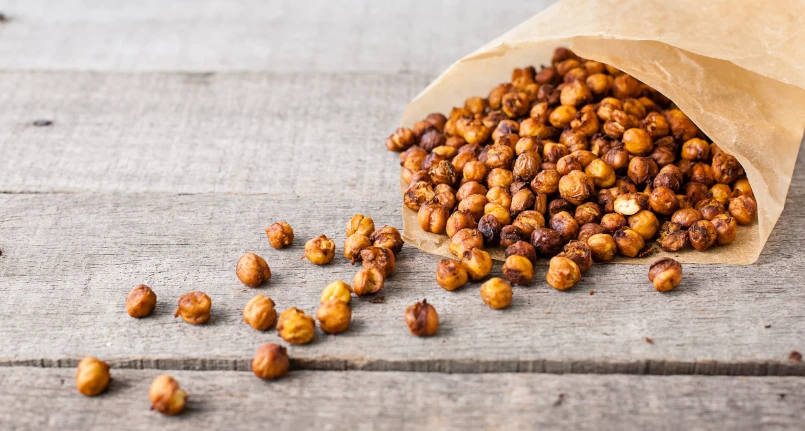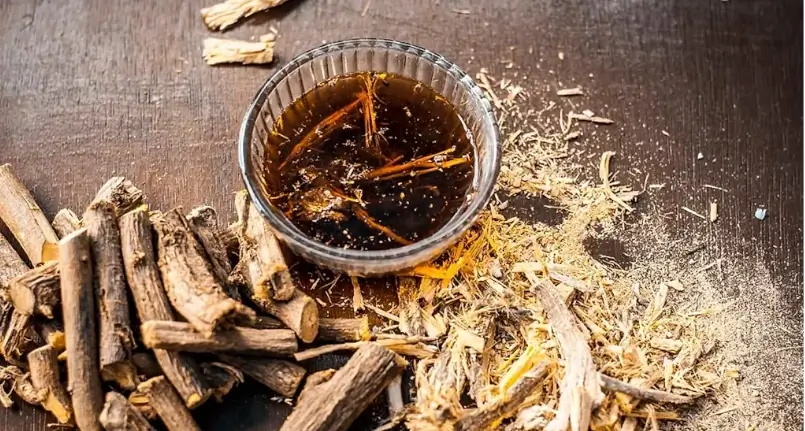Immune system: the importance of nutrition
Nutrition has a huge impact on health and plays a fundamental role in the proper functioning of our immune system . This is why we often hear about immunonutrition .
Some of the foods we eat every day positively affect the efficiency of the body’s defenses , help control inflammation and carry out a preventive action for many pathologies; on the other hand, there are foods that negatively influence immune reactions and, for this reason, they should be introduced in moderation.
Among the foods that play a protective role on our defense system there are the so-called superfoods , real concentrates of specific nutrients , such as vitamins , mineral salts , essential fatty acids, fibers , antioxidants , enzymes , amino acids or phytocompounds, to which attributed particularly beneficial properties for health. Blueberries , garlic , ginger , kale , matcha , Goji berries , seaweedand chia seeds are just a few examples of “superfoods” that can have surprisingly positive effects on our bodies.
Stress: the enemy of the immune system
Stress – understood as a set of reactions that occur in the body in response to a destabilizing event for the psycho-emotional sphere – is notoriously a factor that makes the body more vulnerable to the typical infectious diseases of the winter period, both by increasing the risk to develop them and leading to longer healing times.
Especially when stressful situations continue over time and continue to cause tension that does not ease, they end up weakening the immune system . Greatly responsible for this lowering of the defenses is cortisol , not surprisingly also known as the ” stress hormone “. When it is produced in abundance, cortisol due to its characteristic interferes with the communication mechanism between the cells of the immune system, resulting in a lower production of lymphocytes as a direct consequence .
In periods of high tension, the risk of falling ill also increases due to the adoption of unhealthy behaviors that further compromise the effectiveness of the natural defences, such as reducing the hours of sleep or an unregulated diet (too high in calories, low in vitamins and fiber high in sugar , etc.).
Relieving stress is an excellent strategy to support the immune system: to do so, it is important to apply some precautions to your lifestyle. To better manage situations that generate tension and strengthen the body by helping it fight diseases better, it is therefore good to remember to:
- make movement;
- Get enough sleep ;
- Follow a balanced, varied diet rich in fruit and vegetables ;
- Engage as much as possible in something pleasant;
- Possibly take supplements that help the immune system.
Anti-stress superfoods
Prolonged stress increases the need for some precious nutrients for the body’s defences, vitamins and mineral salts in the first place. In these situations, superfoods can help us fill up on the ” active ingredients ” that keep the immune system strong and help it in its important protective task: if our body has the weapons to defend itself, it is stronger and the response against attacks by infectious agents will be better. At the same time, anti-stress superfoods – mostly in the form of berries , seeds, cereals , algae, vegetables and fruits – help remedy the damage that can result from long-lasting psychophysical tensions.
In addition to the essential micronutrients for health, such as vitamins and minerals , superfoods contain an innumerable variety of non-nutrient functional substances (i.e. not essential for the maintenance of cellular functions and metabolism , but useful for their beneficial properties), mainly contained within nutraceutical compounds that have demonstrated a potential positive effect on the immune system.
Examples are:
- The polyphenols contained in fruits and vegetables, such as anthocyanins from berries ;
- The curcumin from turmeric ;
- Resveratrol from grapes ; _
- The Catechins of Tea and Cocoa .
Many other nutraceuticals have a history of use associated with supporting the body’s natural defences, such as probiotics and Echinacea . Alongside these, two important innovations are inserted in the field of immunomodulation and adaptation of the organism to stressful stimuli : we are talking about the Beta-glucans derived from some mushrooms and Ashwagandha ( Whitania somnifera ), a plant also known as ginseng Indian or winter cherry.
Beta-glucans have demonstrated appreciable properties in terms of supporting the immune system, especially as regards inflammation control. Ashwagandha is, on the other hand, one of the most effective adaptogenic plants , also used in Ayurvedic medicine above all to improve cognitive function and strengthen the body’s immune defences . Let’s see in more detail the potential of these two innovative functional substances.
Ashwagandha
Ashwagandha: characteristics and adaptogenic properties
Ashwagandha is a plant with tonic and “adaptogenic” characteristics, used for thousands of years in Indian and Chinese tradition to promote longevity, improve vitality and concentration, help reduce stress and fatigue of everyday life .
The dual function of Ashwagandha, relaxing and invigorating , reveals its great value: that of adapting perfectly to the needs of the body at that moment.
For this reason, Ashwagandha is considered an adaptogenic plant , whose ability to support an adequate immune response has now been widely demonstrated by science.
Stress and adaptogens: what relationship?
Typically, the body’s response to stress is controlled by the hypothalamic-pituitary – adrenal ( HPA ) axis, a complex feedback network of neurochemicals and hormones that are part of the neuroendocrine system . When responding to internal or external stressors, HPA helps restore and rebalance the body. Nowadays, however, the stimuli that cause stress are many and different from each other, so the risk of throwing one’s psycho-physical balance into a tailspin is often high.
Adaptogens help reduce the intensity and impact of stressors that affect the body ‘s ability to respond and balance its systems. This class of botanical substances is, in fact, able to intervene on the functions of the immune system and the central nervous system regulated by the hypothalamic – pituitary -adrenal axis and can have a positive impact on their mediators, including hormones, neuropeptides, nitric oxide and cytokines.
The ultimate goal of adaptogens is precisely to rebalance and regenerate the body , helping it to “adapt” to physical, mental and emotional stress . To do this, they do not act specifically on an organ, but on the whole body.
This is also the peculiarity of Ashwaganda: the whole plant extract is able to help the body adapt to situations of physical tiredness and, contributing to relaxation and mental well-being, supports the body’s natural defenses and immune response.
Benefits of Ashwagandha
Ashwagandha is an adaptogenic plant, whose purpose is to help the body regain its natural balance during times of stress.
The adaptogenic power is promoted by the components found within the whole plant:
- The leaves of the Ashwagandha plant contain bioactives that help improve cognition, sleep and oxidative stress , as well as support a healthy immune response;
- Its roots are used, however, above all to promote longevity, improve vitality and support, once again, the immune system.
In summary, Ashwagandha has the following benefits:
- Manages and reduces stress;
- Increases energy levels;
- Supports the immune system;
- Improve focus and reaction time ;
- Improve the quality of sleep ;
- Improve mental cognitive health, mood, fatigue and vitality;
- Supports joint health ;
- Supports cardiovascular health ;
- Supports healthy endothelial function and healthy lipid profile.
Beta-glucans
Beta-glucans: how they support defenses in the over 60s
Beta-glucans are naturally occurring polysaccharides found in yeast, shiitake mushrooms, and grains such as barley, oats, rye, and wheat.
Numerous laboratory researches have shown how beta-glucans act as immunomodulators , i.e. they can support the immune function, modifying, generally in a beneficial way, the body’s reaction to a possible threat.
Yeast-derived beta-glucans, for example, affect the inflammatory and antimicrobial activities of neutrophils and macrophages, cells that are part of the innate immune system. Ongoing research reveals how yeast beta-glucans can “train” the body’s immune cells to react more quickly when a pathogen is detected. This proves to be particularly useful as a support to the needs of some segments of the population, such as that of the over 60s , in which it can increase the fragility and risk of malfunctioning of the immune system .
Indeed, in the elderly, the needs of the defense system change, aided by environmental factors, nutritional deficiencies, chronic pathologies and genetics: it is no coincidence that after the age of sixty we speak of immunosenescence . To counteract this phenomenon, it is important to adopt behaviors that can contribute to aging in the best possible way , while preserving health. In this sense, nutrition, with its adequate dose of micronutrients (vitamins and mineral salts) and macronutrients (in particular, proteins) can positively influence the well-being of those who are over the years.
Beta -glucans consumed through the diet or taken in the form of food supplements fit into this area: with their immunomodulatory properties , these can help regulate the normal immune response, so as to respond more effectively as soon as an agent is detected pathogen.
Main benefits of Beta-glucans
In summary, beta-glucans:
- They help the immune system;
- They are supportive of general well-being;
- They are supportive of the immune system in the over 60s;
- They are 100% natural.
Beta-glucans: the importance of the source and the production method
While similar to each other, not all beta-glucans are created equal , and not all of their sources have been correlated with immune system benefits. For this reason, it is important to carefully choose the source from which they derive , making sure that it always remains the same, and to extract these polysaccharides with a specific method which keeps their characteristics intact.
Even the production method makes the difference : the purification process can influence the molecular structure of the yeast beta-glucan, even modifying its immunomodulatory properties.
High quality beta-glucans are supported by the perfect understanding of an ingredient’s biological activity through clinical research, its manufacturing processes and standardization practices used to ensure that the ingredient is stable, effective and of high quality. Only through this approach is the effectiveness of a beta-glucan guaranteed.




